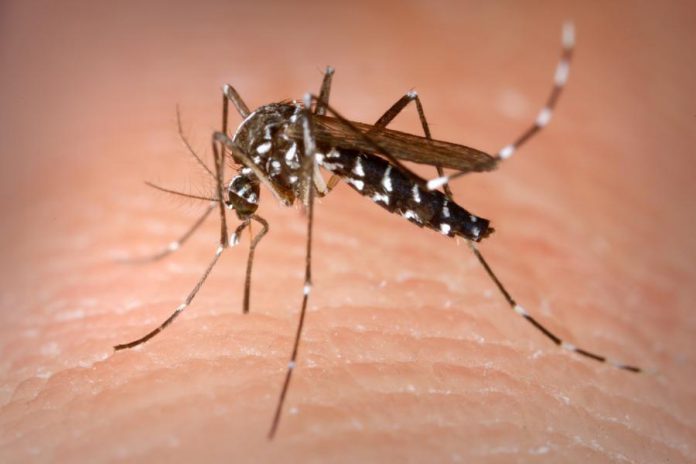The Haliburton, Kawartha, Pine Ridge (HKPR) District Health Unit is urging residents and visitors to protect themselves after West Nile virus was found in mosquitoes collected in Haliburton County.
The health unit received confirmation that a batch of mosquitoes collected in Haliburton on Thursday, July 6th have tested positive for West Nile virus.
“This finding is an important reminder that when we are outdoors, we need to fight the bite of infected mosquitoes that can spread West Nile virus,” says Richard Ovcharovich, Manager of Environmental Health with the HKPR District Health Unit.
This is the first time in 2017 that West Nile virus has been detected in the areas served by the HKPR District Health Unit.
To reduce the risk of West Nile virus, area residents should:
- Cover up. Wear light-coloured, long-sleeved shirts, jackets, long pants, hats and socks when outside, especially between dusk and dawn when mosquitoes are most active. Apply insect repellent containing DEET on exposed skin.
- Clean up. Eliminate mosquito breeding areas by removing standing water around homes and cottages, including bird baths, old tires and unused containers like barrels. Keep bushes and shrubs clear of overgrowth and debris; turn compost piles on a regular basis; ensure window and door screens fit tightly and do not have holes.
Statistics compiled by Public Health Ontario show West Nile virus has been detected in three batches of mosquitoes collected across the province. To date, no human cases of West Nile virus have been reported in Ontario this year.
The confirmation of the virus comes earlier this year, as the HKPR District Health Unit did not see a positive mosquito pool in 2016 until late August. Last year, there were 211 positive mosquito pools and 50 human cases recorded in Ontario.
“Typically West Nile virus confirmations occur later in the summer,” Ovcharovich explains. “So this early finding confirms that we always need to be vigilant when protecting ourselves from illness caused by mosquitoes right from spring until the first heavy frost in the fall.
“We have seen evidence of other mosquito-borne illnesses in our area as well in recent years so it’s more important than ever to protect ourselves from the bite of mosquitoes.”
While most people who get West Nile virus do not experience any symptoms, a small number of individuals may develop flu-like symptoms such as high fever, severe headache, muscle weakness and stiff neck. In a few cases, people may develop more severe symptoms, including confusion, tremors and sudden sensitivity to light.
People who suspect they have West Nile Virus should seek immediate medical attention.
For more information about West Nile virus, call the HKPR District Health Unit at 1-866-888-4577 or visit www.hkpr.on.ca.



























